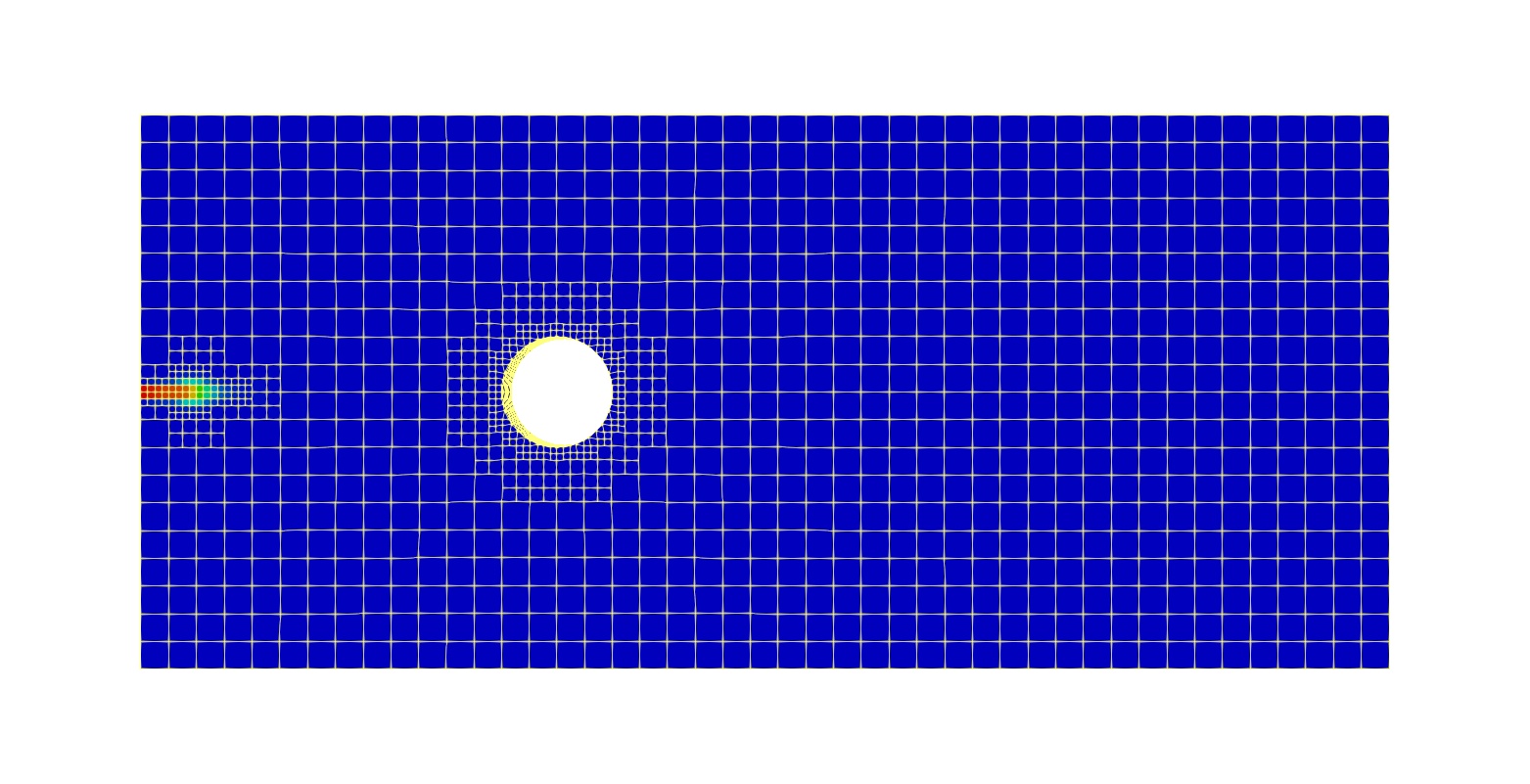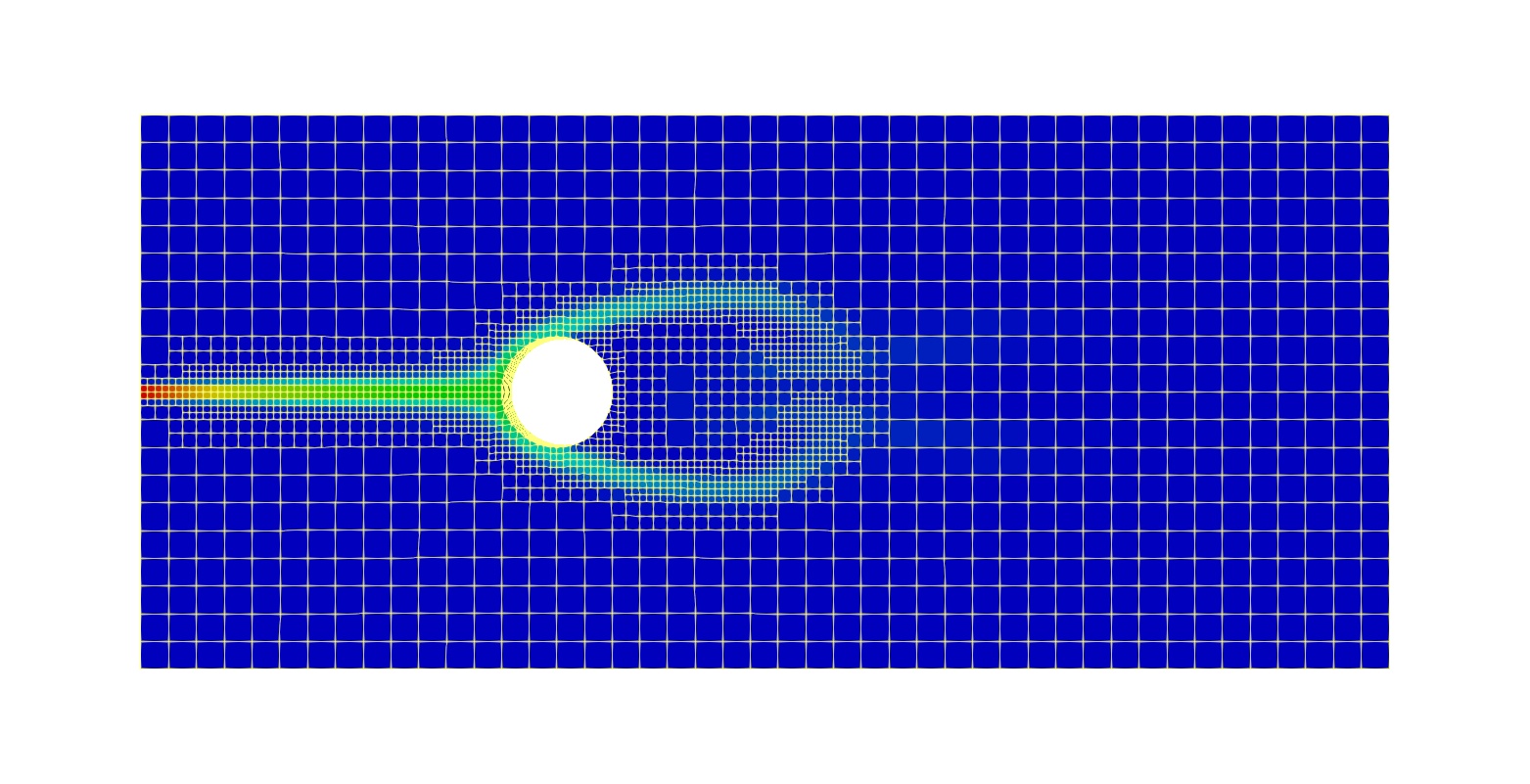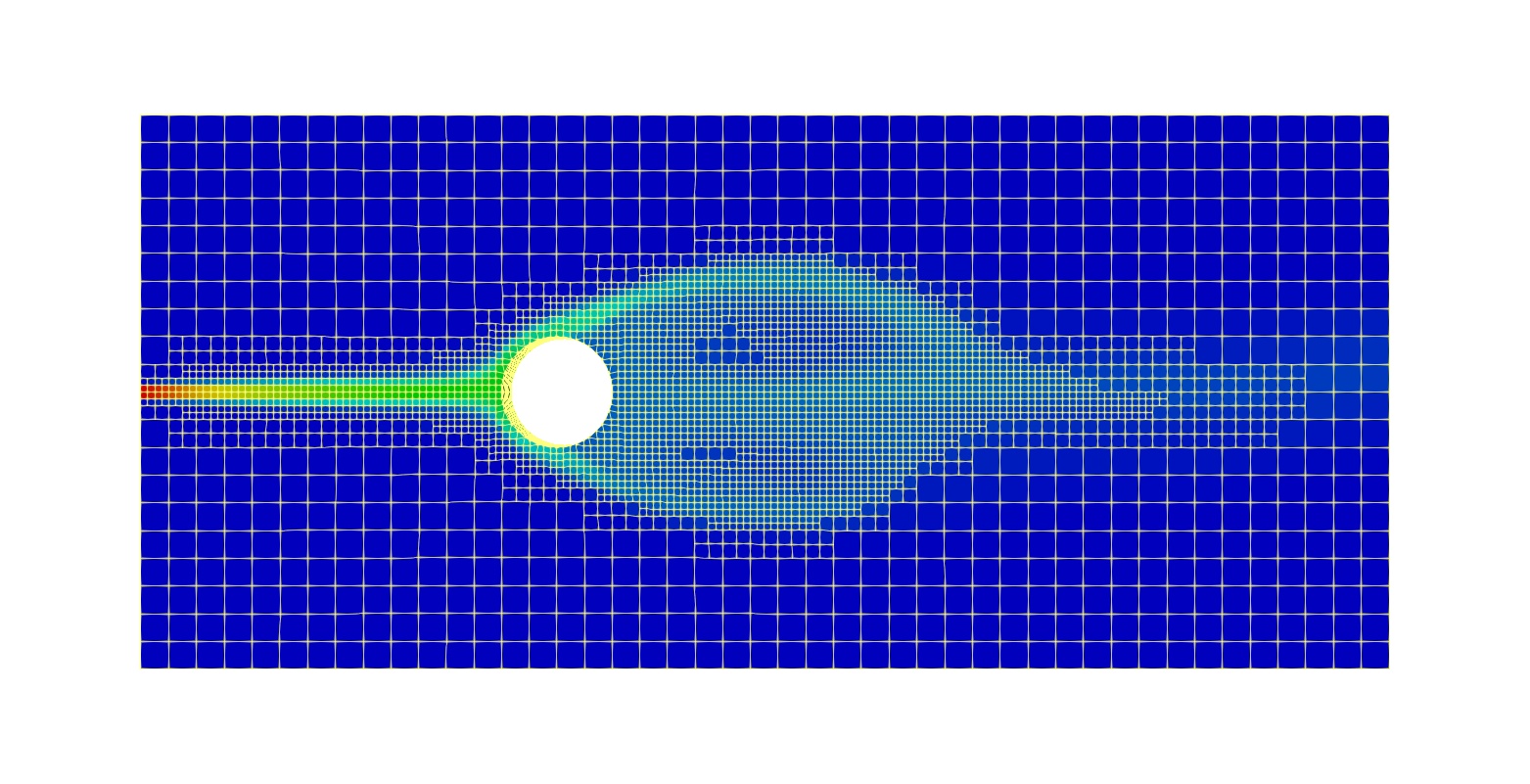Pseudo-2D Adaptive Mesh Refinement
2D meshing, pimpleFoam, adaptive mesh refinement, function objects, fvOptions
The adaptive mesh refinement (AMR) method is a common strategy for significant numerical investigations, including phenomena that have to be reasonably resolved (mesh density). Using the AMR functionality, OpenFOAM® allows one to refine only the regions of interest. This training case models a pseudo-2D situation, which means that the dynamic mesh refinement library from OpenFOAM® can only handle real 3D problems. It is worth to mention that a real 2D adaptive mesh refinement engine exists in the »blastFoam« library published by Synthetic Applied Technologies.
The AMR library of OpenFOAM® can only be used for 3D cases
The training case provided by Tobias Holzmann takes the adaptive (automatic) mesh refinement into account. However, due to the fact that OpenFOAM® does not offer a 2D adaptive mesh refinement, this case is a pseudo-2D case. The dynamic mesh library refines the numerical cells that meet a defined criterion during the simulation; here, a passive scalar value is used. As mentioned before, the »blastFoam« library comes with a real 2D mesh refinement library.



Published under the GNU General Public License 3
Over the last ten years, Tobias tried to publish a wide range of different materials related to OpenFOAM® and CFD. You know it much better than he does if the content is worth to be supported. If you want to thank Tobias for the work he did, feel free to tell the community your opinion about the work Tobias Holzmann is doing or you can email your thoughts directly to »
Support the work of Tobias Holzmann
The available OpenFOAM® training cases are tested and built for different OpenFOAM® versions (not distributions) on a Linux machine. During the tests, only the OpenFOAM Foundation version of OpenFOAM® was used. Furthermore, the following software packages are required for most of the training cases: Salome®, ParaView®, and for optimization tasks, one also needs the open-source software DAKOTA®. The OpenFOAM® cases might work with the ESI version of OpenFOAM® but it is not supported. For the OpenFOAM® extend project, the training cases will probably not work as the code diverged too much. Additionally, there is no support for Windows-based and MAC-based OpenFOAM® versions.
This offering is not approved or endorsed by OpenCFD Limited, producer and distributor of the OpenFOAM software via www.openfoam.com, and owner of the OPENFOAM® and OpenCFD® trade marks
Share the work on Your social network
Tobias would be grateful if you share his work on your social network in order to keep the OpenFOAM® community up to date. Furthermore, sharing the work will avoid that people investigate into topics, that are already prepared for your study such as the examples provided by Tobias Holzmann.


